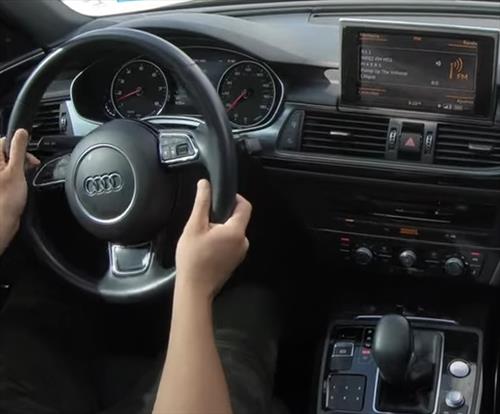
If you have a car that when the gas pedal is pressed and you are accelerating, there is a jerking motion, this can be caused by several things.
Possible causes include air intake, gas delivery, spark, timing, and transmission issues.
Each category, such as fuel delivery, needs to work correctly, or it can cause issues.
How to Troubleshoot a Car Jerks When Accelerating
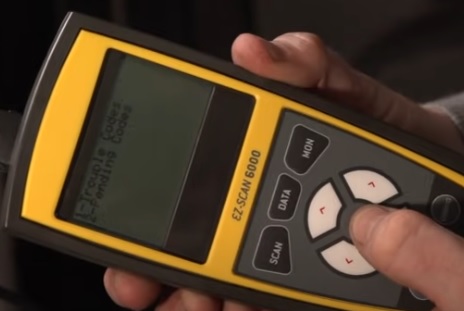
The first thing to do is to scan the vehicle’s computer (ECM/PCM/ECU) for any error codes.
This is quick and easy to do with an OBDII scan tool.
If you do not have a scan tool, many automotive stores will scan a vehicle for free, but be sure to call around first to verify.
There are also many low-cost scan tools, some for less than $20-$30 dollars, with many options available.
If there are any error codes, then it will point to what the issue is.
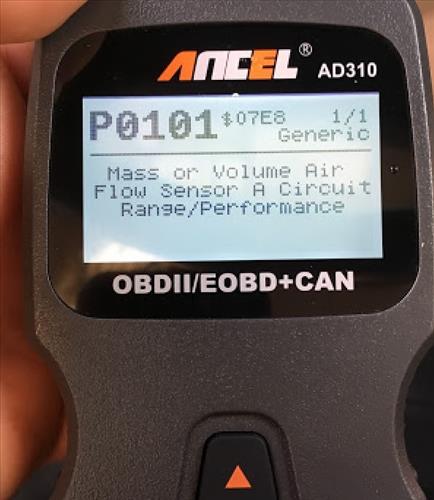
For example, a P101 would be a Mass Airflow Sensor problem.
Causes and Fixes When a Car Jerks When Accelerating
- Fuel Delivery Problem
- Dirty Throttle Body
- Bad Throttle Body Position Sensor
- Dirty Fuel Injectors
- Dirty Air Filter
- Bad or Dirty MAF Sensor
- Vacuum Leak
- Bad Spark Plugs
- Bad Ignition Coil or Coil Pack
- Spark Plug Wires
- Check Fluid Level
- Change Transmission Fluid
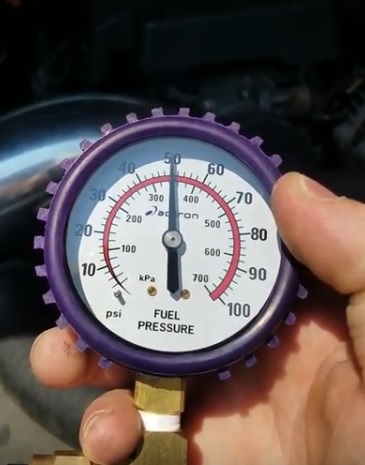
A fuel delivery problem is a common cause for a car or truck that jerks when accelerating.
This includes components such as a weak fuel pump or clogged fuel filter.
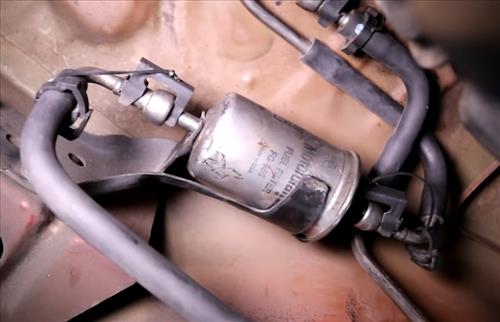
Cars and trucks with an inline fuel filter are a common cause of low fuel pressure.
Many vehicles have the fuel filter inside the gas tank with the fuel pump but if there is an inline fuel filter it should be replaced regularly.
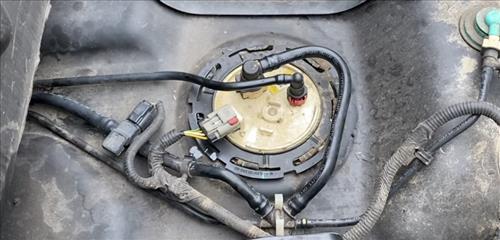
A fuel pressure gauge can be used to see if there is a fuel delivery problem.
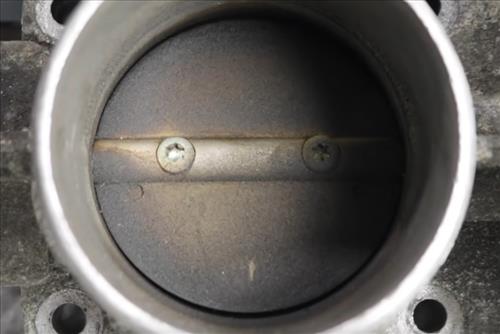
A dirty throttle body can cause issues with idling and surging or jerking of an engine.
When a throttle body becomes dirty, it turns blackish with a lot of soot.
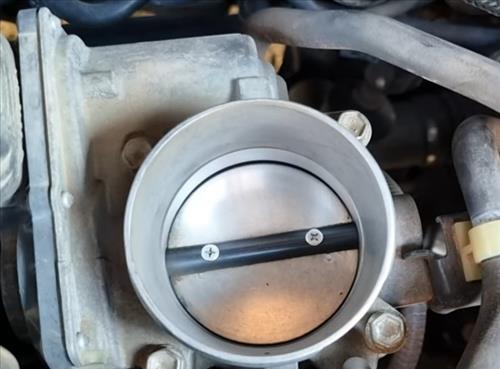
If it is dirty, it can be cleaned with a throttle body cleaner and a small toothbrush.
A bad TPS (Throttle Body Position Sensor) can also cause issues.
When a TPS goes bad, it will give a code such as P0122: Throttle Position Sensor/Switch A Circuit Low Input.
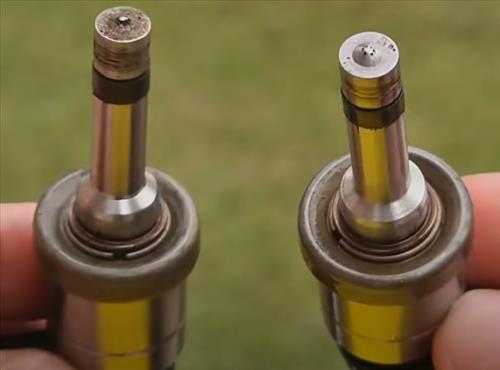
If the fuel pressure at the fuel rail is good and there is no TPS sensor coded, one or more of the fuel injectors may be bad.
They could have failed or become clogged up and need replacing.
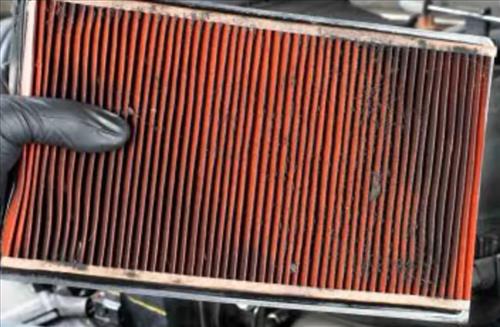
A clogged or dirty intake air filter will block the flow of air going into an engine and cause issues.
Check the air filter and be sure it is clean and not dirty and clogged up.
Many cars and trucks have a MAF sensor (Mass Air Flow Sensor) that reports to the computer how much air is going into the engine.
When it goes bad or gets dirty, it can throw off the air-fuel ratio mixture and cause a problem.
A bad MAF sensor will give a code such as P101, P102, P103, and P104.
If it is faulty, usually it can be cleaned up with a Mass Air Flow Sensor Cleaner.
If there is a vacuum leak, then it can throw off sensors such as the MAF sensor and cause idle and acceleration issues.
Common causes of a vacuum leak are a loose or damaged hose, a bad PCV valve, or anything that causes the engine to lose its vacuum.
Examine the top of the engine for any loose hoses and the PCV valve, which is a common failure point.
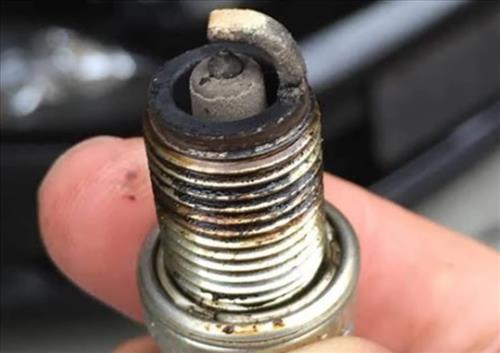
Bad spark plugs will not fire correctly and cause the engine to run poorly.
They can be removed and examined to see if the have failed.
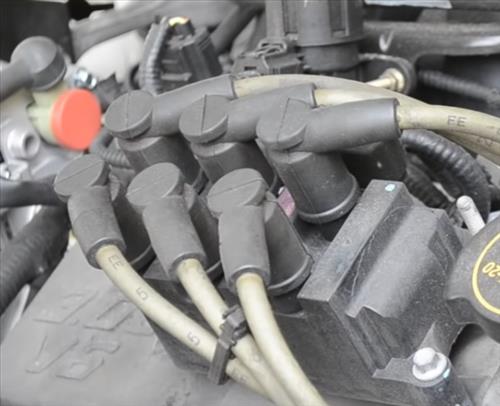
A fault or weak coil can cause acceleration issues.
This includes ignition coil and coil packs, which can often be overlooked.
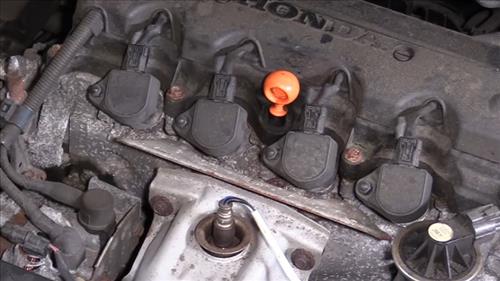
Often, the coil is overlooked since the engine is running, but if it is weak and going bad, it may not deliver a good spark when needed.
Old spark plug wires can also cause an engine to run poorly.
Spark related components should be replaced as a part of regular maintenance.
Check your manufacturer rated miles of use for the components to see if they need to be replaced.
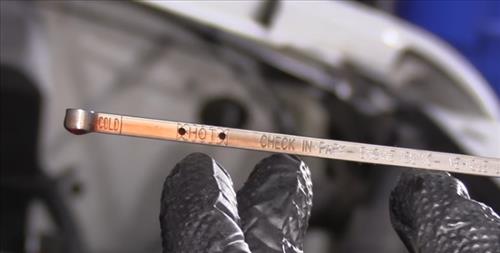
A transmission can cause jerking when accelerating.
Often, when a transmission does have issues, other symptoms will also happen, such as hard shifting or grinding noises.
If this is happening to your car or truck, check the transmission fluid and be sure it is at the correct level.
If the transmission fluid is at the correct level, check to see if it is dirty.
Dirty transmission fluid can cause shifting problems and damage.
Check your manufacturer rated miles of use to see if it needs to be changed along with a new filter.